The Well-Tempered Ear
Revisit historical and forgotten pianists with Mark Ainley’s ‘Piano Files’
2 Comments
PLEASE HELP THE EAR. IF YOU LIKE A CERTAIN BLOG POST, SPREAD THE WORD. FORWARD A LINK TO IT OR, SHARE IT or TAG IT (not just “Like” it) ON FACEBOOK. Performers can use the extra exposure to draw potential audience members to an event. And you might even attract new readers and subscribers to the blog.
By Jacob Stockinger
Who were Jascha Spivakosky, Gitta Gradova, Wilhelm Backhaus, Marcelle Meyer, Benno Moisiewitsch, Guitar Novaes (below), Eugen Indjic and Solomon — pianists from Russia/Ukraine, the United States, Germany, France, England, Brazil, Serbia/US and England, respectively?
Who was the Polish-American Josef Hofmann (below) and why did Sergei Rachmaninoff and others consider him the greatest pianist of his day while others considered him — and still do — dangerously radical?
Why was the early death of Dino Lipatti (below) such a major loss for classical music?
Most of all: How did these performers play the piano? What made them special? And what did they sound like?
Just ask Mark Ainley (below).
Ainley’s online Piano Files goes back to the earliest days of recordings and resurrects forgotten virtuosi on Facebook and the web.
His frequently posts entries — often on birthdays or anniversaries of deaths and certain concerts — offers concise, well researched and well-written summaries of their lives and careers.
And he finds the best surviving or available recordings by those pianists — usually on YouTube or reissued CDs and LOPs (below) — and links to them so you can hear differences and decide for yourself.
For example, The Ear found the 1930 recording of Chopin mazurkas that Polish pianist Ignaz Friedman (below) recorded (on YouTube at the bottom) quite revealing about historical stylistic and rhythmic differences — freer rubato and hands not always played together — compared to more mainstream interpretations by, say, Arthur Rubinstein or Vladimir Horowitz or Martha Argerich.
You can also learn much about the Big Names, including pianists who studied with students Chopin and Liszt. Ainley celebrates well-known piano virtuosi like Rubinstein, Horowitz, Gina Bachauer, Claudio Arrau, Jorge Bolet and Dame Myra Hess as well.
Ainley’s Piano Files save you a lot of time and searching on your own, and are available for you to subscribe to for downloads and sharing on Facebook:
https://www.facebook.com/ThePianoFilesWithMarkAinley
You can also go to his online website — which I prefer — and bookmark it if you like. There is a lot to explore, to read and listen to. The archives of past entries go back to March of 2011:
https://www.thepianofiles.com/author/Mark
And here is email if you have or a tip or suggestion for Ainley, or a reaction to his site and his written and recorded postings:
What do you think of the Piano Files?
Do you learn anything from them?
Will you use them and enjoy them?
The Ear wants to hear.
Tags: #FacebookPost, #FacebookPosting, 2011, America, American, anniversary, Apple, archives, Arrau, Arthur Rubinstein, Arts, Asia, asian, Bach, Beethoven, Benno Moisiewitsch, big, big names, Bing, birthday, blog, bookmark, Brazil, Carl Mikuli, Chamber music, Chopin, Classical music, classical pianist, classical piano, Claudio Arrau, composer, Concert, concerto, concise, dance, dangerous, death, Dinu Lipatti, download, Early music, effort, England, enjoy, Eugen Indjic, Euorpe, European, explore, Facebook, forget, forgotten, France, Frédéric Chopin, French, Germany, Gina Bachauer, Gitta Gradova, Google, Google Alert, Google Search, Great Britain, Greece, Greek, hands, historical, how, interpret, interpretation, Jacob Stockinger, Jascha Spivakosky, Johann Sebastian Bach, Jorge Bolet, Josef Hofmann, learn, listen, Liszt, loss, Ludwig van Beethoven, Marcelle Meyer, Mark Ainley, Martha Argerich, mazurka, Microsoft, Microsoft Bing, Mikuli, Mozart, Music, Myra Hess, names, neglect, neglected, North America, North American, ok, online, Orchestra, OS, Pianist, pianists, Piano, Piano Files with Mark Ainley, Poland, Polish, Rachmaninoff, Rachmaninov, radical, recording, reserach, rhythm, rubato, Russia, Russian, search, Serb, Serbia, share, Solomon, Sonata, South America, South American, Student, students, subscribe, surviving, Swiss, Switzerland, tag, The Ear, The Well-Tempered Ear, time, U.S., UK, Ukraine, Ukrainean, Ukrainian, United States, University of Wisconsin-Madison School of Music, University of Wisconsin–Madison, use, vintage, virtuoso, Vladimir Horowitz, Website, what, when, why, Wilhelm Backhaus, Wisconsin, Wolfgang Amadeus Mozart, writing, you, YouTube
FREE birthday bash for Johann Sebastian Bach is this Saturday in Madison
4 Comments
PLEASE HELP THE EAR. IF YOU LIKE A CERTAIN BLOG POST, SPREAD THE WORD. FORWARD A LINK TO IT OR, SHARE IT or TAG IT (not just “Like” it) ON FACEBOOK. Performers can use the extra exposure to draw potential audience members to an event. And you might even attract new readers and subscribers to the blog.
By Jacob Stockinger
The Ear thinks of this week’s Bach Around the Clock — which runs March 6-10 — as a double celebration.
The primary one is to mark the 339th birthday of composer Johann Sebastian Bach (below, March 20, 1685-July 28, 1750), whom many consider to be the Big Bang of Western classical music.
The second celebration is to honor the late Madison violist Marika Fischer Hoyt (below), who with help resurrected Bach Around the Clock in Madison after it had been dropped by Wisconsin Public Radio.
Talented, hard-working and congenial, Fischer — who died a year ago of cancer — was a fixture of the local music scene. She was a member of the Wisconsin Chamber Orchestra and spent 20 years playing in the Madison Symphony Orchestra. An outstanding chamber musician, she also helped found and played in the Ancora String Quartet.
An avid proponent of early music using period instruments and historically informed performance practices, Fischer Hoyt helped found and play in the weekly free Just Bach concerts. She performed regularly with the Madison Bach Musicians and with an early music string group she helped found, Sonata à Quattro.
Here is a link to a complete schedule on the BATC website:
The Ear thinks Marika would be very pleased and proud of this year’s event.
It will feature Bach’s original choral and instrumental music in many genres and transcriptions. Soloists and groups of varying sizes will take part. And Bach’s music — so central to the repertoire and all levels of musicianship — will be performed by students (below are members of the Suzuki Strings), by amateurs and by professionals (in the YouTube video at the bottom) — making BATC a truly community-wide celebration of Bach.
The hours for the Birthday Bash concert, which used to run 12 hours, have been cut back to a reasonable and accessible 10 a.m.-5 p.m. at St. Andrew’s Episcopal Church, 1833 Regent St., on Madison’s near west side. But a birthday cake will still be cut at the end.
And in case you want to duck in and out or catch certain performances or performers, here is a full program schedule for Saturday:
https://drive.google.com/file/d/1CIRby29h6wZjyngZgyMPpTrLNiMC_1OR/view
You can find links to all other events and programs — printed in blue — on the main website for the March 6-10 festival.
Performances by performers in their own homes and studios will air online as part of the Virtual Festival held of BATC’s YouTube channel, starting at midnight on this Sunday, March 10. Its runs without a time limit and can be accessed worldwide.
Here is a link to the YouTube channel, which also has past performances
https://www.youtube.com/channel/UCHBRPHSGd_fNECp-qrWsqlQ
Have you attended or heard other Bach Around the Clocks?
What do you think of the celebration?
The Ear wants to hear.
Tags: #BlogPost, #BlogPosting, #FacebookPost, #FacebookPosting, #GoogleAlert, #Hard Work, #YouTubevideo, 2021, 2022, 2023, 2024, accessible, Ancora String Quartet, Android, Arts, attend, Bach Around the Clock, Baroque, BATC, birthday, blog, Brain, cake, cancer, Cantata, celebration, Cello, central, Chamber music, choral music, chorus, church, Classical music, clavichord, community, complete, composer, Concert, concerto, congenial, cut, dead, death, die, died, Early music, Episcopal, event, Facebook, festival, free, fugue, genre, Google, Google Alert, group, harpsichord, hear, historically informed performance practices, Home, honor, instrument, instrumental, Jacob Stockinger, Johann Sebastian Bach, Keyboard, link, Madison, Madison Bach Musicians, Madison Symphony Orchestra, Marika Fischer Hoyt, memory, Music, Musician, musicianship, online, Orchestra, organ, original, OS, Overture, Overture Center, partita, Passion, performance, performer, period instruments, Pianist, Piano, Prelude, program, Protestant, reasonable, repertoire, repertory, share, singer, Singing, soloist, Sonata, Sonata à Quattro, Spple, St. Andrew's Episcopal Church, String quartet, strings, studio, Suite, Suzuki, Suzuki Strings, symphony, tag, talent, The Ear, transcription, tumor, United States, University of Wisconsin-Madison School of Music, University of Wisconsin–Madison, Viola, Violin, violist, virtual, vocal music, volinist, Website, Wisconsin Chamber Orchestra, wisconsin public radio, worldwide, you, YouTube, ytalented
Solving the beautiful mathematics of Bach
Leave a Comment
PLEASE HELP THE EAR. IF YOU LIKE A CERTAIN BLOG POST, SPREAD THE WORD. FORWARD A LINK TO IT OR, SHARE IT or TAG IT (not just “Like” it) ON FACEBOOK. Performers can use the extra exposure to draw potential audience members to an event. And you might even attract new readers and subscribers to the blog.
By Jacob Stockinger
The music of Johann Sebastian Bach (below) doesn’t just sound mathematical.
It IS mathematical.
And although fugues sound the most overtly mathematical of all Bach’s works, you can find complex mathematical and informational patterns to varying degrees in the preludes (below) and overtures, sonatas and partitas, cantatas and oratorios, concertos, suites and toccatas . (In the YouTube video at the bottom, you can hear pianist and Bach specialist Andras Schiff play the long, complex and sublime Prelude and Fugue in B minor, BWV 869, No. 24 from Book I of the Well-Tempered Clavier.
Here is the link to the story about physicists who solved Bach’s math that was featured in Scientific American:
https://www.scientificamerican.com/article/secret-mathematical-patterns-revealed-in-bachs-music
You can also hear plenty of Bach’s beautifully mathematical music live and online for FREE during the upcoming Bach Around the Clock (BATC) celebration of his birthday in Madison. It will take place March 6-10.
Here is a link to the schedule of performers and repertoire both in live performance and virtually online:
Tags: #BaroqueOratorio, #BlogPost, #BlogPosting, #FacebookPost, #FacebookPosting, #YouTubevideo, 2024, András Schiff, Arts, Bach, Bach Around the Clock, Baroque, BATC, beauty, birthday, blog, BWV, Cantata, celebration, Cello, Chamber music, choral music, Classical music, complex, composer, Concert, concerto, Early music, Facebook, free, French, fugue, German, Jacob Stockinger, Johann Sebastian Bach, link, live, long, Madison, Madison Symphony Orchestra, march, math, mathemarics, mathematical, Music, online, oratorio, Orchestra, partita, performance, performer, physicist, physics, Pianist, Piano, Prelude, repertory, repetoire, schedule, Scientific America, share, Sonata, stream, streamed, study, sublime, Suite, symphony, tag, The Ear, toccata, United States, University of Wisconsin-Madison School of Music, University of Wisconsin–Madison, Viola, Violin, virtual, vocal music, Wisconsin, YouTube
Bach Around the Clock 2023 is now streaming live and virtual performances
Leave a Comment
PLEASE HELP THE EAR. IF YOU LIKE A CERTAIN BLOG POST, SPREAD THE WORD. FORWARD A LINK TO IT OR, SHARE IT or TAG IT (not just “Like” it) ON FACEBOOK. Performers can use the extra exposure to draw potential audience members to an event. And you might even attract new readers and subscribers to the blog.
By Jacob Stockinger
Perhaps you’ll recall the cold weather and heavy snow that greeted the seventh annual celebration of Johann Sebastian Bach’s birthday with — Bach Around the Clock — in Madison a few weeks ago.
The bad winter weather even caused performances to be cancelled during the March 8-12 event.
But the free and public festival was planned to be both live and virtual, and now BATC has started to stream globally both public and private performances with more in the offing. It is a testament to the vision and unending hard work of the late director Marika Fischer Hoyt, who died just weeks before it began, that the festival remains on such a solid footing and seems certain to survive without her.
For complete details about programs and performers, go to the website’s home page: https://bachclock.com/
And here is a previous blog post with more background: https://welltempered.wordpress.com/2023/03/08/remember-marika-with-bach-around-the-clock-2023-the-free-celebration-begins-today-and-runs-through-saturday-in-person-and-online/
The variety is astounding. You will find professionals, amateurs and young students. You will find choral music and instrumental music. You will find well-known pieces and less common repertoire. In short, you should find something to please you and perhaps even something that you or someone you know took part in.
Here is a link to the first batch of recorded and streamed performances:
Watch on YouTube the BATC 2023 virtual performances recorded in the homes and studios of Jim Burkholder; Tim Farley; Jeffery Rowley; Linda Clifford; Kieran Foltz; students of Shannon Farley; Marjasana Kay with Mark Bramptom Smith and Carol Carlson; Glenwood Moravian Trombone Choir; and The Neighborly Consort.
Also available now are: Just Bach’s Wednesday, March 8, concert of a motet; and Sean Kleve’s Thursday, March 9, marimba lecture/performance.
Recordings of performances from the all-day Saturday concert at St. Andrew’s Episcopal Church will be posted soon.
Stay tuned! And spread the word!
Tags: #BlogPost, #BlogPosting, #FacebookPost, #FacebookPosting, #Hard Work, amateur, Arts, audience, Bach, Bach Around the Clock, Baroque, BATC, birthday, blog, brass, Cello, Chamber music, choral music, Classical music, clavichord, composer, Concert, concerto, Early music, Facebook, footing, free, global, instrumental music, international, Jacob Stockinger, Johann Sebastian Bach, Just Bach, Keyboard, lecture, link, live, live concert, Madison, Marika Fischer Hoyt, marimba, motet, Music, Orchestra, organ, performance, Piano, professional, Sean Kleve, share, Sonata, streaming, Student, survive, tag, Tom Farley, Trombone, United States, University of Wisconsin–Madison, Viola, Violin, virtual, vision, vocal music, weather, Wind, winter, Wisconsin, YouTube, YouTube video
Remember Marika with Bach Around the Clock 2023. The FREE five-day, in-person and online birthday celebration begins today
16 Comments
PLEASE HELP THE EAR. IF YOU LIKE A CERTAIN BLOG POST, SPREAD THE WORD. FORWARD A LINK TO IT OR, SHARE IT or TAG IT (not just “Like” it) ON FACEBOOK. Performers can use the extra exposure to draw potential audience members to an event. And you might even attract new readers and subscribers to the blog.
NOTE: You can see and hear the Madison Symphony Orchestra’s Final Forte concert with four youth concerto finalists at 7 tonight on PBS Wisconsin and Wisconsin Public Radio. For complete information, including other airings, go to these websites: https://madisonsymphony.org/education-community/education-programs/young-artist-competitions/the-final-forte/ and https://pbswisconsin.org/the-final-forte/
By Jacob Stockinger
The seventh annual Madison-based Bach Around the Clock festival — a celebration of the March 31 birthday of composer Johann Sebastian Bach (1685-1756, below) —- will start today and run through Sunday both in-person and online.
All events and streaming are free and open to the public.
As usual, it will feature professional and amateur performers of all ages and levels of proficiency in all kinds of repertoire and arrangements, including Bach on the Marimba.
It begins today, Wednesday, March 8, at noon with a Bach motet sung in Luther Memorial Church, 1021 University Ave.
The live portion, which will also be live-streamed, will end on Saturday, March 11, from 10 a.m. to 5 p.m. with continuous performances at St. Andrew’s Episcopal Church (below) at 1833 Regent Street on the near west side.
Then on this Sunday, March 12, the virtual online festival will premier.
For more details — including a full schedule with times, venues, pieces, performers and other links — go to:
Home
The Ear thinks of the entire festival as a life celebration and memorial not just for Bach but also for his avid local advocate, violist Marika Fisher Hoyt (below).
Hoyt — who was also a member of the Madison Symphony Orchestra, the Wisconsin Chamber Orchestra, the Madison Bach Musicians, the Ancora String Quartet, Just Bach and Sonata à Quattro — died Feb. 21 from cancer. She was one of the kindest and most caring persons, one of the hard-working and most energetic, talented musicians, that The Ear has ever known and worked with.
After Wisconsin Public Radio abandoned BATC in 2013, Fischer Hoyt rescued it in 2017, raised money and support, and expanded its offerings and performers as well as took it into a virtual online format as well as remaining an in-person event.
You can find many tributes online. You can also plug in her name on this blog’s search engine to get some idea of her overwhelming and inspiring contributions to the area’s cultural life. In 2017, The Ear named her Musician of the Year:
Classical music: For reviving and securing Bach Around the Clock, The Ear names Marika Fischer Hoyt as “Musician of the Year” for 2017
But the best tribute of all will be to listen to Bach’s extraordinarily inventive and beautiful music — her abiding passion and the gift she never stopped wanting to give to others — with Marika in mind.
You can also find videos from past BATC’s. But she once told me that the piece she loved most is the St. John Passion. So a YouTube video of the final chorus from that oratorio is posted at the bottom.
Have you attended or heard BATC before?
What did you especially like and would you recommend the event to others?
Did you know Marika Fischer Hoyt?
What would you like other people to know about Marika?
The Ear wants to hear.
Tags: #AncoraStringQuartet, #BlogPost, #BlogPosting, #FacebookPost, #FacebookPosting, #Hard Work, #LiveStreaming, #MarikaFischerHoyt, #TheEar, #YouTubevideo, Ancora String Quartet, Arts, audience, Bach, Bach Around the Clock, Baroque, BATC, beautiful, beauty, birthday, blog, cancer, caring, Cello, Chamber music, choral music, chorus, Christ, Christian, church, Classical music, composer, Concert, concerto, contribution, culture, death, Early music, Facebook, Final Forte, free, give, God, in person, information, Jacob Stockinger, Jesus, Jesus Christ, Johann Sebastian Bach, Just Bach, kind, life, link, Lutheran, Madison, Madison Bach Musicians, Madison Symphony Orchestra, Marika Fischer Hoyt, memorial, Music, online, open to the public, oratorio, Orchestra, Passion, PBS, PBS Wisconsin, performer, Piano, piece, program, Protestant, public, Religion, remember, repertoire, schedule, share, Sonata, Sonata à Quattro, sonic, St. Andrew's Episcopal Church, St. John Passion, stream, tag, talent, The Ear, time, United States, University of Wisconsin-Madison School of Music, University of Wisconsin–Madison, venue, Viola, Violin, violist, virtual, vocal music, want, Wisconsin, Wisconsin Chamber Orchestra, wisconsin public radio, WPR, YouTube
Vivaldi turns 345 today. His irresistable music deserves more live performances
15 Comments
PLEASE HELP THE EAR. IF YOU LIKE A CERTAIN BLOG POST, SPREAD THE WORD. FORWARD A LINK TO IT OR, SHARE IT or TAG IT (not just “Like” it) ON FACEBOOK. Performers can use the extra exposure to draw potential audience members to an event. And you might even attract new readers and subscribers to the blog.
By Jacob Stockinger
Today The Ear wishes Happy Birthday to composer Antonio Vivaldi (below), who was born on this day — March 4 — in 1678 in Venice. (He became famous but died in poverty at age 63 on July 28, 1741, also in Venice.)
The Ear likes Vivaldi and his music deserves many more live performances. Even local early music and modern music groups seems reluctant to program much Vivaldi besides “The Four Seasons,” despite the popularity of his other works. Vivaldi not only composed a lot but he did so for many instruments — strings, brass, winds — and in other genres than concertos including sonatas, choral works and operas.
Listen to Vivaldi in the morning. Who can resist him? The Italian style with its energetic rhythm, songful lyricism and major-key cheerfulness are caffeine for the ears.
There are so many fine groups and soloists who perform Vivaldi. Yet so much of his prolific output remains relatively unknown or unheard.
That’s too bad. Johann Sebastian Bach recognized a good thing when he heard it, so he “borrowed” and transcribed many of Vivaldi’s works. One imagines the Italian taste for transparency and tunes appealed to Bach and helped him leaven the often dense, even pedantic Germanic counterpoint and smothering religiosity. Vivaldi provided a model influence for Bach’s eclectic fusion of styles.
Here is a link to an extended Wikipedia biography of the “Red Priest” (below) — Vivaldi’s nickname, used during his teaching at an all-girls school in Venice and derived from his bright red hair. It holds some surprises including the political controversy that surrounded Vivaldi in his day:
https://en.wikipedia.org/wiki/Antonio_Vivaldi
A lot of modern musicians and music historians seem to hold Vivaldi’s popularity and listener-friendly music against him. Opinions seem divided over who made the snide remark — Igor Stravinsky, Luigi Dallapiccola or both — that Vivaldi rewrote the same concerto 500 times.
Here is an informative takedown of that putdown:
https://notanothermusichistorycliche.blogspot.com/2018/10/did-stravinsky-say-vivaldi-wrote-same.html
In the YouTube video at the bottom is a favorite Vivaldi movement of mine. It helped give me a lifelong unforgettable moment as an accompaniment to viewing NASA’s recently taken moon footage at 37,000 feet in a plane on my way to Hawaii. It is the slow movement of the lute concerto played on the guitar by Julian Bream — and it was perfect for expressing weightlessness and space flight.
That was long ago.
These days for period-instrument performances, I tend to favor The English Concert under Trevor Pinnock , The Academy of Ancient Music under Christopher Hogwood, and the Academy of Ancient Music Berlin — although there are others terrific ensembles including the modern instrument groups I Musici and the Academy of St. Martin in the Fields.
For period string soloists — try the double concertos — look to Simon Standage, Monica Huggett, Andrew Manze and Rachel Podger. For modern instrumentalists, check out Victoria Mullova and especially the Israeli violinist Shlomo Mintz, who uses his own ordering and groupings of concertos. I also like the period cellist Christophe Coin and the modern cellist Jean-Guihen Queyras.
Do you have an opinion about Vivaldi — a like or dislike of his music?
Do you have a favorite Vivaldi work?
Do you have favorite performers of Vivaldi?
The Ear wants to hear.
Tags: #AntonioVivaldi, #BlogPost, #BlogPosting, #FacebookPost, #FacebookPosting, #ItalianBaroque, #TheEar, #YouTubevideo, Academy of Ancient Music, Academy of Ancient Music Berlin, Academy of St Martin in the Fields, Andrew Manze, Antonio Vivaldi, Arts, Baroque, Berlin, birthday, blog, born, brass, British, caffeine, Cello, Chamber music, cheerfulness, choral music, Christophe Coin, Christopher Hogwood, clarity, Classical music, composer, Concert, concerto, counterpoint, Early music, ears, eclectic, energy, English, English Concert, ensemble, express, Facebook, favorite, Four Seasons, fusion, genre, Germany, girls, good, Great Britain, guitar, Happy Birthday, History, I Musici, Igor Stravinsky, influence, Israel, Israeli, Italian, Italy, Jacob Stockinger, Jean-Guihan Queyras, Johann Sebastian Bach, Julian Bream, link, listener-friendly, Luigi Dallapiccola, lute, lyricism, Madison, melody, modern, modernism, Monica Huggett, moon, morning, Music, NASA, opera, opinion, perform, poor, popularity, poverty, priest, program, prolific, putdown, Rachel Podger, Red Priest, Religion, school, share, Shlomo Mintz, Simon Standage, snide, soloist, Sonata, space, strings, style, symphony, tag, takedown, The Ear, The Four Seasons, thing, transparency, Trevor Pinnock, tune, UK, United States, Venice, Victoria Mullova, Viola, Violin, Vivaldi, vocal music, wind music, YouTube
Ailing superstar maestro and pianist Daniel Barenboim, 80, quits longtime German opera post
Leave a Comment
PLEASE HELP THE EAR. IF YOU LIKE A CERTAIN BLOG POST, SPREAD THE WORD. FORWARD A LINK TO IT OR, SHARE IT or TAG IT (not just “Like” it) ON FACEBOOK. Performers can use the extra exposure to draw potential audience members to an event. And you might even attract new readers and subscribers to the blog.
By Jacob Stockinger
Yesterday — Friday, Jan. 6, 2023 — superstar maestro and pianist Daniel Barenboim, 80, resigned his longtime post of over 30 years as director of the Berlin State Opera.
Barenboim (below) cited ill health — specifically a severe inflammation of blood vessels — as the reason for his resignation.
Local residents might recall his long tenure at the Chicago Symphony Orchestra, where many of them probably heard him conduct and perhaps even perform as a concert pianist.
Here is a long biographical entry in Wikipedia:
https://en.wikipedia.org/wiki/Daniel_Barenboim
Below are links to two news articles about Barenboim’s decision.
In them you can read a lot of details about: his philosophy of interpretation; his childhood as a Jewish child prodigy in Argentina; his training and early career as both pianist and conductor; his performances with marriage to British cellist Jacqueline du Pré, who died young; his love of German music and his role in Germany’s reunification; his controversial criticism of how Israel treats Palestinians; and the orchestra and music school he co-founded with the Palestinian activist and world-famous literary scholar Edward Said.
Here is a story from British newspaper The Guardian:
And here is the story from the German broadcasting network and media conglomerate Deutsche Welle:
https://na01.safelinks.protection.outlook.com/?url=https%3A%2F%2Fwww.dw.com%2Fen%2Fconductor-daniel-barenboim-resigns-as-berlin-state-opera-director-over-ill-health%2Fa-63760683&data=05%7C01%7C%7Ceeb75c8f244542d0496e08daf02ed28b%7C84df9e7fe9f640afb435aaaaaaaaaaaa%7C1%7C0e%7C638086381129033294%7CUnknown%7CTWFpbGZsb3d8eyJWIjoiMC4wLjAwMDAiLCJQIjoiV2luMzIiLCJBTiI6Ik1haWwiLCJXVCI6Mn0%3D%7C3000%7C%7C%7C&sdata=qmTwyPzkWpJKfAT4ohHJVWWnISE%2BxZS%2FxuM7hrC09zQ%3D&reserved=0
Finally, here is a recent compilation video from the outstanding arts website and streaming service medici.tv to celebrate Barenboim’s recent 80th birthday. It is called “80 Minutes with the Barenboim” and it features many other classical luminaries such as Itzhak Perlman, Pinchas Zukerman and Pierre Boulez who have been vital to his life and global career.
Do you know any of Barenboim’s many recordings?
Do you have a favorite recording to recommend?
Did you ever hear Barenboim in person conduct or play the piano?
What did you think of him? Of his conducting or playing?
The Ear wants to hear.
Tags: #BerlinGermany, #BlogPost, #BlogPosting, #DanielBarenboim, #FacebookPost, #FacebookPosting, #MusicalInterpretation, #TheEar, #Wikipediabiography, #YouTubevideo, activist, Argentina, Argentine, Arts, Bach, Barenboim, Beethoven, Berlin, Berlin State Opera, biography, birthday, blog, career, Cello, Chamber music, Chicago, Chicago Symphony Orchestra, Classical music, Concert, concerto, conductor, culture, Daniel Barenboim, Edward Said, Facebook, German, Germany, global, illness, interpretation, Israel, Israeli, Israeli–Palestinian conflict, Jacob Stockinger, Jacqueline du Pré, Jewish, Johann Sebastian Bach, La Scala, life, link, Ludwig van Beethoven, Maestro, Mozart, Music, news, opera, Orchestra, Palestinian, philosophy, Pianist, Piano, Pierre Boulez, Pinchas Zukerman, Politics, poor health, prodigy, recording, share, sick, superstar, symphony, tag, The Ear, Violin, violinist, vocal music, West-Eastern Divan Orchestra, Wikipedia, Wolfgang Amadeus Mozart, YouTube
Today – Monday, March 22 — is Day 6 of the 2021 online Bach Around the Clock festival. The program features string, keyboard, percussion and vocal music with some interesting transcriptions
Leave a Comment
PLEASE HELP THE EAR. IF YOU LIKE A CERTAIN BLOG POST, SPREAD THE WORD. FORWARD A LINK TO IT OR, SHARE IT or TAG IT (not just “Like” it) ON FACEBOOK. Performers can use the extra exposure to draw potential audience members to an event. And you might even attract new readers and subscribers to the blog.
By Jacob Stockinger
Yesterday – Sunday, March 21 — was the actual birthday, the 336th, of Johann Sebastian Bach (1685-1750).
But the 10-day virtual and online celebration being held by Bach Around the Clock (BATC) continues.
Here are the pieces and performers that will take place.
The Ear is especaially pleased by some of the transcriptions, which offer more proof of just how indestructible and versatile Bach’s music remains.
Particularly interesting is the string quartet version of the famous cantata “Wachet auf” (Sleepers, Wake) and the Three-Part Inventions or Sinfonias transcribed for marimba, and played by Sean Kleve (below), a UW-Madison graduate who performs with the critically acclaimed experimental Madison-based percussion ensemble Clocks in Motion.
Monday’s program is available starting at 8 a.m.
Click here and scroll down to Day 6 to view.
Performers
• Minuet 2 in G Major, Anh 116; Suite in G Minor, BWV 822; Gavotte from Double Concerto in D Minor, BWV 1043, I. Vivace. Suzuki Strings Sonora Ensemble
• Cantata 140: “Wachet Auf” (Sleeper, Wake), arranged for string quartet. St. Croix Valley String Quartet: Janette Cysewski and Debbie Lanzen, violins; Dianne Wiik, viola; and Joel Anderson, cello.
• French Suite No. 3 in B Minor for keyboard, BWV 814: Sarabande, Anglaise, Menuett and Trio. Kris Sankaran
• Sinfonia 1 in C Major, BWV 787; Sinfonia 7 in E Minor, BWV 793; Sinfonia 10 in G Major, BWV 796; Sinfonia 11 in G Minor, BWV 797; Sinfonia 15 in B Minor, BWV 801. Sean Kleve, marimba. (You can hear Glenn Gould playing the original version of the first Sinfonia in the YouTube video at the bottom.)
• Chorale: We thank Thee, Lord, for sending. Katie Hultman, soprano, and Kenneth Stancer, organ
Live and Recorded Evening Program at 7 p.m.
Click here and scroll down to Day 6 to view.
BATC audiences will remember pianist Lawrence Quinnett (below) from his exquisite renderings of selections from The Well-Tempered Clavier, at the 2018 Festival.
Quinnett, on the piano faculty of Livingstone College, returns in 2021 to give a brief talk on his approach to ornamentation in the six French Suites, as a prelude to his live performance of Suite No. 5. The floor will open for questions, followed by Quinnett’s recorded performance of the remaining five Suites.
Tags: #BachAroundtheClock, #BachCantata, #BaroqueMusic, #BaroqueOrnamentation, #BlogPost, #BlogPosting, #ChamberMusic, #ChoralMusic, #CityofMadison, #ClocksinMotion, #CriticallyAcclaimed, #DoubleConcerto, #FacebookPost, #FacebookPosting, #FrenchSuite, #GlennGould, #JacobStockinger, #JesusChrist, #JohannSebastianBach, #KeyboardMusic, #LawrenceQuinnett, #LiveMusic, #LiveStreaming, #LivingstoneCollege, #MadisonWisconsin, #MeadWitterSchoolofMusic, #MusicEducation, #OnlineConcert, #OnlineFestival, #PercussionEnsemble, #PercussionMusic, #RecordedMusic, #SeanKleve, #Sleeps, #SonoraStrings, #StringMusic, #StringQuartet, #SuzukiMethod, #SuzukiStrings, #TheEar, #TheUW, #TheWell-TemperedClavier, #Three-PartInvention, #UniversityofWisconsin-Madison, #VirtualConcert, #VirtualFestival, #WachetAuf, #Well-TemperedClavier, #YouTubeChannel, #YouTubevideo, 1685\2021, Anglaise, answer, approach, arrange, arrangement, Arts, audience, Bach, Bach Around the Clock, Baroque, BATC, birthday, blog, Blog post, blog posting, brief, BWV, Cantata, celebration, cellist, Cello, Chamber music, channel, choral music, Chorale, Christ, Classical music, classicalmusic, clavier, Clocks in Motion, composer, Concert, concerto, continue, critically acclaimed, day, double, double concerto, Early music, evening, experimental, exquisite, Facebook, faculty, famous, festival, floor, forward, French, French Suite, Gavotte, Glenn Gould, harpsichord, harpsichordist, indestructible, interesting, Jacob Stockinger, Jesus, Johann Sebastian Bach, Keyboard, Lawrence Quinnett, like, link, live, live music, livestream, Livingstone College, Lord, Madison, major, march, marimba, marimbist, Mead Witter School of Music, menuett, minor, morning, Music, Music education, offer, online, open, ornamentation, percussion, Percussion Ensemble, Percussion music, perform, performer, Pianist, Piano, piece, play, please, pleased, professor, program, proof, Q&A, question-and-answer, questions, recorded, recorded music, remain, renderings, return, sarabande, Sean Kleve, selection, share, sinfonia, Sleepers, Sonora Strings, start, string music, String quartet, Student, subscriber, Suite, Suzuki Method, Suzuki Strings, tag, talk, temper, thank, The Ear, The Well-Tempered Clavier, Thee, Three-Part Invention, transcribed, transcription, trio, United States, University of Wisconsin-Madison School of Music, University of Wisconsin–Madison, UW, UW-Madison, versatile, video, Viola, Violin, violinist, violist, virtual, vivace, vocal music, Wachet auf, Wachet auf ruft uns die Stimme, wake, Well-Tempered Clavier, Wisconsin, YouTube
Today’s Just Bach concert starts the 10-day Bach Around the Clock festival that runs through March 26. All events are free and online. Here are the lineups
Leave a Comment
PLEASE HELP THE EAR. IF YOU LIKE A CERTAIN BLOG POST, SPREAD THE WORD. FORWARD A LINK TO IT OR, SHARE IT or TAG IT (not just “Like” it) ON FACEBOOK. Performers can use the extra exposure to draw potential audience members to an event. And you might even attract new readers and subscribers to the blog.
By Jacob Stockinger
Today — Wednesday, March 17 – brings the free monthly Just Bach concert that is online for 30 minutes.
This year that concert will also serve as the opening event of the annual Bach Around the Clock (BATC) festival to celebrate the birthday of Johann Sebastian Bach.
Here is a link to the lineup of the Bach Around the Clock events. As of this writing, many of the special morning and evening guests and events are listed. But the daytime programs and performers are listed only for today, tomorrow and the final concert. The Ear understands the rest of the listings will be up by the end of today: https://bachclock.com/concert-schedule
There might be frequent additions, changes and updates, so it is best to check back often.
The Ear has heard that, as usual, the festival will include students, amateurs and professionals; young people and adults; individuals, smaller chamber music ensembles and larger groups; and many well-known and neglected works from many genres.
Those genres include vocal and choral music; keyboard music for clavichord, harpsichord, piano and organ; string music for violin, viola and cello; wind and brass music; and much more.
Daily festival concerts will be posted starting at 8 a.m. Central Daylight Time and evening segments will begin at 7 p.m CDT. All events and concerts will be posted and available during the entire festival.
As for today’s Just Bach concert, here is the announcement from Marika Fischer Hoyt (below), the artistic director of Bach Around the Clock and a co-founder and co-director of Just Bach:
Greetings from Just Bach! We hope this finds you well, and ready to experience more of the timeless beauty of Bach, this month in music for organ and strings.
Our concert TODAY opens with a welcome and program overview from me. We figure when Just Bach and Bach Around The Clock join forces, the Master himself (below, in a cutout, in a photo by Barry Lewis) is summoned.
Today’s program opens with organist Mark Brampton Smith (below) playing two Sinfonias from Cantata 35.
These are arrangements of two dramatic organ concerto movements, and Mark brings off the virtuosic passages with flair, while the strings provide a spirited accompaniment.
Then the strings take center stage – in arrangements for string quartet — bringing a yearning melancholy to the slow Andante movement of Brandenburg Concerto No. 2, BWV 1047, and energy and excitement to Brandenburg Concerto No. 3, BWV 1048.
The program closes with our popular chorale sing-along, “Befiehl du deine Wege” (Commend Your Ways), BWV 271. I will introduce the piece and the text, and my sister, soprano Barbara Fischer, will sing it — with Mark on the organ.
We encourage viewers to sing along by following the chorale sheet music, which will be displayed on the computer screen.
Do you have a question for the performers? Would you like to listen in as they chat about the program? Please join us for a half-hour live Zoom post-concert reception tonight, March 17, at 7 p.m. The link is posted on the Just Bach website: https://justbach.org/concerts/
As regular performers on Luther Memorial Church’s weekly “Music at Midday” concert series, Just Bach presents half-hour programs starting at 8 a.m. on the third Wednesday of each month and then remain posted. Remaining dates this semester: March. 17, April 21, and May 19. Our concerts are posted on the Just Bach and Luther Memorial YouTube Channels: https://www.youtube.com/channel/UCcyVFEVsJwklHAx9riqSkXQ
Viewing the concerts is free, but we ask those who are able, to help us pay our musicians with a tax-deductible donation at: https://justbach.org/donate/
Today’s performers include members of the Madison-based early music group Sonata à Quattro (below in photo by Barry Lewis) and are: Christine Hauptly Annin and Aaron Yarmel, violin; Marika Fischer Hoyt, viola; Charlie Rasmussen, cello; Mark Brampton Smith, organ; and Barbara Fischer, guest soprano.
Dave Parminter is the videographer and Barry Lewis is the photographer.
Tags: #AaronYarmel, #AmateurMusician, #ArtisticDirector, #artsorganization, #ArtsWisconsin, #BachAroundtheClock, #BachCantata, #BarbaraFischer, #BaroqueMusic, #BarryLewis, #BlogPost, #BlogPosting, #BoySoprano, #BrandenburgConcerto, #BrassMusic, #CentralTime, #ChamberMusic, #CharlieRasmussen, #ChoralMusic, #ChristianChurch, #ChristineHauptlyAnnin, #CityofMadison, #ConcertoGrosso, #DaveParminter, #FacebookPost, #FacebookPosting, #HistoricallyInformedPerformancePractices, #HomeWebsite, #JacobStockinger, #JesusChrist, #JohannSebastianBach, #JustBach, #KeyboardMusic, #LutherMemorialChurch, #MadisonSymphonyOrchestra, #MadisonWisconsin, #MarikaFischerHoyt, #MarkBramptonSmith, #MeadWitterSchoolofMusic, #MusicatMidday, #MusicEducation, #OnlineConcert, #OnlineFestival, #OrganConcerto, #PeriodInstruments, #SarahBrailey, #SheetMusic, #StringMusic, #StringQuartet, #TheEar, #TheUW, #UniversityofWisconsin-Madison, #VirtualConcert, #VirtualFestival, #VocalMusic, #WindMusic, #WisconsinChamberOrchestra, #YoungPeople, #YouTubeChannel, #YouTubevideo, #ZoomMeeting, 2021, Aaron Yarmel, accompaniment, adult, amateur, Andante, announcement, April, arrangement, Artistic director, Arts, audience, Bach, Bach Around the Clock, Barbara Fischer, Baroque, Barry Lewis, BATC, beauty, birthday, blog, Brandenburg Concerto, brass music, BWV, Cantata, CDT, celebrate, cellist, Cello, center, Central Daylight Saving Time, Central Time, Chamber music, Charlie Rasmussen, chat, check, choral music, Chorale, Christ, Christian, Christine Hauptly Annin, church, Classical music, clavichord, composer, computer, Concert, concerto, Concerto Grosso, cutout, date, Dave Parminter, daytime, display, donation, drama, dramatic, Early music, encourage, energy, evening, event, excitement, experience, Facebook, festival, final, flair, forces, forward, founder, frequent, genre, greet, group, groups, guests, harpsichord, historically informed performance practices, hope, individual, introduce, Jacob Stockinger, Jesus, Jesus Christ, Johann Sebastian Bach, join, Just Bach, keyboard music, large, like, lineup, link, live, Lord, Luther Memorial Church, Madison, Madison Symphony Orchestra, march, Marika Fischer Hoyt, Mark Brampton Smith, Master, May, Mead Witter School of Music, melancholy, monthly, morning, movement, Music, Music at Midday, Music education, neglected, online, open, opening, Orchestra, organ, organ concerto, organist, passage, paticipating, pay, performer, period instruments, photo, photographer, Pianist, Piano, popular, post, posted, posting, professional, program, public, question, reception, Sarah Brailey, schedule, screen, segment, share, sheet music, sinfonia, sing, sing-along, singer, Singing, sister, slow, small, Sonata, song, soprano, spirit, stage, start, string music, String quartet, Student, summon, tag, tax-deductible, Teacher, text, The Ear, timeless, transcription, United States, University of Wisconsin-Madison School of Music, University of Wisconsin–Madison, unusual, updates, UW, UW-Madison, videographer, viewer, Viola, Violin, violinist, violist, virtual, virtuosic, vocal music, Website, Wednesday, welcome, well-known, wind music, Wisconsin, Wisconsin Chamber Orchestra, work, writing, yearning, young people, YouTube, Zoom
- May 2024
- April 2024
- March 2024
- February 2024
- January 2024
- December 2023
- November 2023
- October 2023
- September 2023
- August 2023
- July 2023
- June 2023
- May 2023
- April 2023
- March 2023
- February 2023
- January 2023
- December 2022
- October 2022
- September 2022
- June 2022
- May 2022
- April 2022
- March 2022
- July 2021
- June 2021
- May 2021
- April 2021
- March 2021
- February 2021
- January 2021
- December 2020
- November 2020
- October 2020
- September 2020
- August 2020
- July 2020
- June 2020
- May 2020
- April 2020
- March 2020
- February 2020
- January 2020
- December 2019
- November 2019
- October 2019
- September 2019
- August 2019
- July 2019
- June 2019
- May 2019
- April 2019
- March 2019
- February 2019
- January 2019
- December 2018
- November 2018
- October 2018
- September 2018
- August 2018
- July 2018
- June 2018
- May 2018
- April 2018
- March 2018
- February 2018
- January 2018
- December 2017
- November 2017
- October 2017
- September 2017
- August 2017
- July 2017
- June 2017
- May 2017
- April 2017
- March 2017
- February 2017
- January 2017
- December 2016
- November 2016
- October 2016
- September 2016
- August 2016
- July 2016
- June 2016
- May 2016
- April 2016
- March 2016
- February 2016
- January 2016
- December 2015
- November 2015
- October 2015
- September 2015
- August 2015
- July 2015
- June 2015
- May 2015
- April 2015
- March 2015
- February 2015
- January 2015
- December 2014
- November 2014
- October 2014
- September 2014
- August 2014
- July 2014
- June 2014
- May 2014
- April 2014
- March 2014
- February 2014
- January 2014
- December 2013
- November 2013
- October 2013
- September 2013
- August 2013
- July 2013
- June 2013
- May 2013
- April 2013
- March 2013
- February 2013
- January 2013
- December 2012
- November 2012
- October 2012
- September 2012
- August 2012
- July 2012
- June 2012
- May 2012
- April 2012
- March 2012
- February 2012
- January 2012
- December 2011
- November 2011
- October 2011
- September 2011
- August 2011
- July 2011
- June 2011
- May 2011
- April 2011
- March 2011
- February 2011
- January 2011
- December 2010
- November 2010
- October 2010
- September 2010
- August 2010
- July 2010
- June 2010
- May 2010
- April 2010
- March 2010
- February 2010
- January 2010
- December 2009
- November 2009
- October 2009
- September 2009
- August 2009
Archives
- 2,491,629 hits
Blog Stats
Recent Comments
| Brian Jefferies on Classical music: A major reass… | |
| welltemperedear on What made Beethoven sick and… | |
| rlhess5d5b7e5dff on What made Beethoven sick and… | |
| welltemperedear on Beethoven’s Ninth turns 200… | |
| Robert Graebner on Beethoven’s Ninth turns 200… |
Tags
#BlogPost #BlogPosting #ChamberMusic #FacebookPost #FacebookPosting #MeadWitterSchoolofMusic #TheEar #UniversityofWisconsin-Madison #YouTubevideo Arts audience Bach Baroque Beethoven blog Cello Chamber music choral music Classical music Compact Disc composer Concert concerto conductor Early music Facebook forward Franz Schubert George Frideric Handel Jacob Stockinger Johannes Brahms Johann Sebastian Bach John DeMain like link Ludwig van Beethoven Madison Madison Opera Madison Symphony Orchestra Mead Witter School of Music Mozart Music New Music New York City NPR opera Orchestra Overture Center performer Pianist Piano post posting program share singer Sonata song soprano String quartet Student symphony tag The Ear United States University of Wisconsin-Madison School of Music University of Wisconsin–Madison Viola Violin vocal music Wisconsin Wisconsin Chamber Orchestra wisconsin public radio Wolfgang Amadeus Mozart YouTube





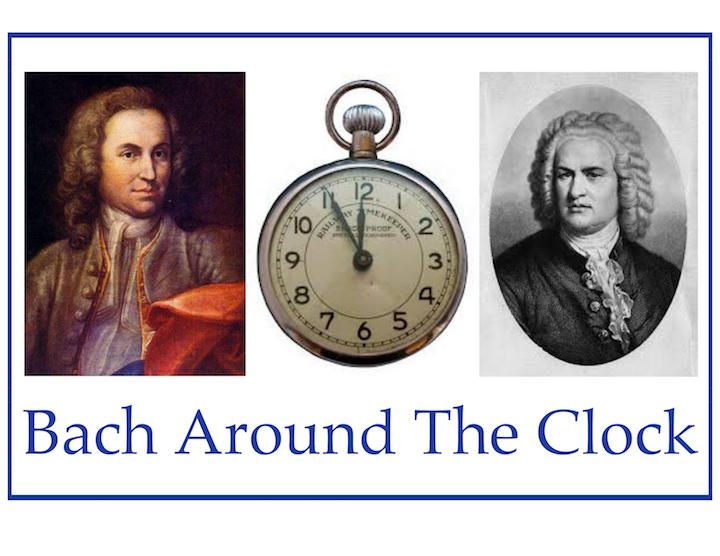
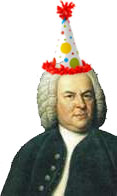
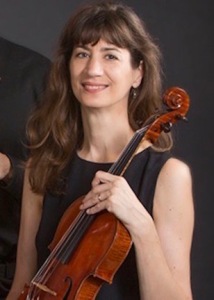
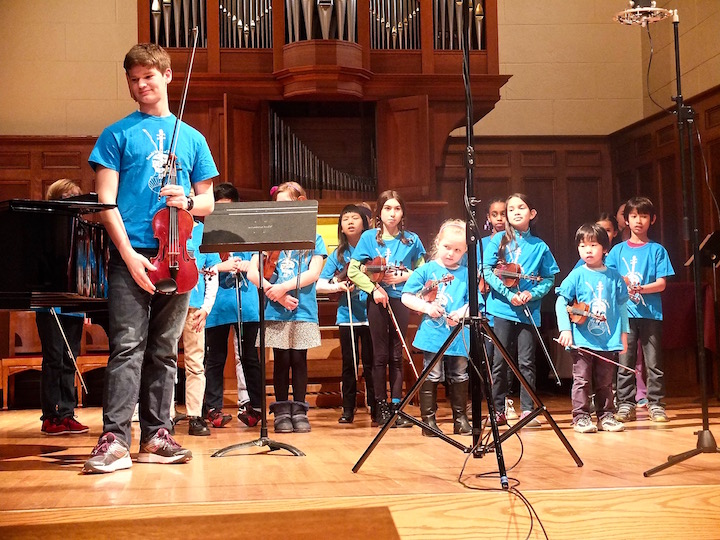
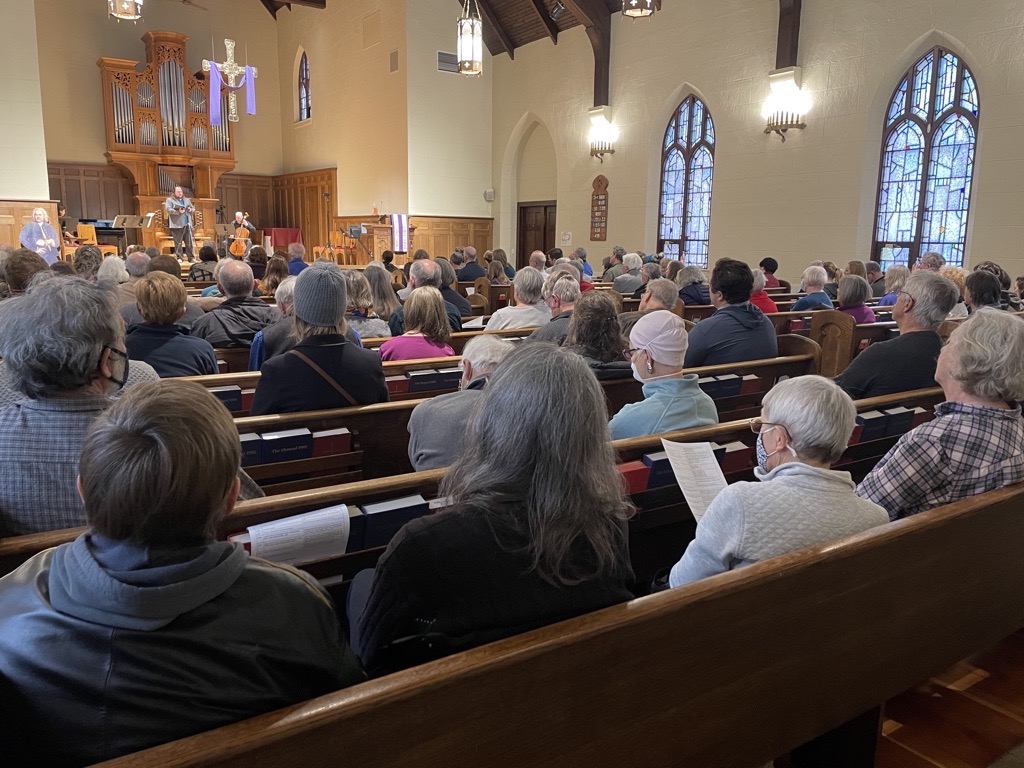
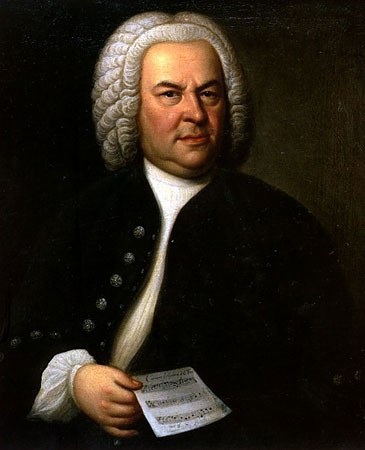



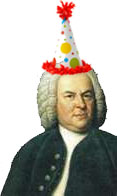



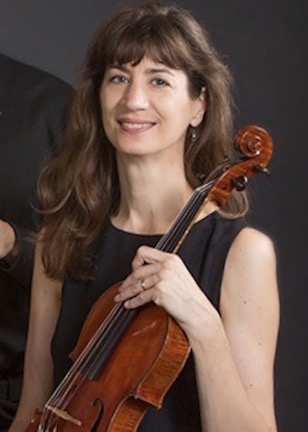




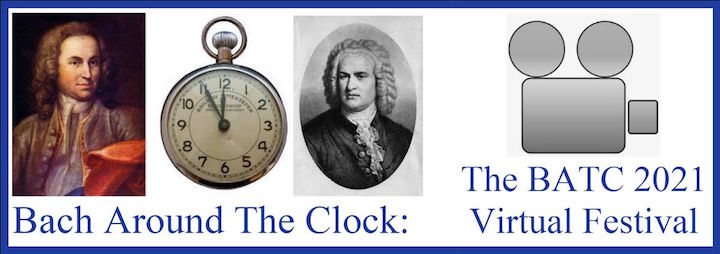








Critics for The New York Times name their Top 10 online classical concerts for May
Leave a Comment
PLEASE HELP THE EAR. IF YOU LIKE A CERTAIN BLOG POST, SPREAD THE WORD. FORWARD A LINK TO IT OR, SHARE IT or TAG IT (not just “Like” it) ON FACEBOOK. Performers can use the extra exposure to draw potential audience members to an event. And you might even attract new readers and subscribers to the blog.
By Jacob Stockinger
Even as we wait to see whether concerts in the next season will be mostly streamed or live, the critics for The New York Times have named their Top 10 classical concerts to stream and hear online in May.
The Times critics have been doing this during the pandemic year. So perhaps if and when they stop, it will be a sign of returning to concert life before the pandemic.
Then again, maybe not, since The Ear suspects that many listeners have liked the online format, at least for some of the times and for certain events. So maybe there will be a hybrid format with both live and online attendance.
As the same critics have done before, they mix an attention to contemporary composers, world premieres and up-and-coming performers, including the Finnish conductor Susanna Maliki (below top) in a photo by Hiroyuki Ito for The New York Times).
In a welcome development, the recommendations for this month also seem to mention more Black composers, performers and pieces than usual, including the rising star bass-baritone Davon Tines (below, in a photo by Vincent Tullo for The New York Times).
But you will also find many of the “usual suspects,” including Haydn, Mozart, Schubert, Bartok, Benjamin Britten, Olivier Messiaen and Shostakovich. (On the play list is Schubert’s last song, “The Shepherd on the Rock,” which you can hear in the YouTube video at the bottom.)
You will also find dates and times (all are Eastern), links to the event and some short commentaries about what makes the concerts, programs and the performers noteworthy.
Here is a link to the story: https://www.nytimes.com/2021/04/29/arts/music/classical-music-streaming.html
Do you know of local, regional, national or international online concerts that you recommend? Leave word with relevant information in the Comment section.
Happy Listening!
Share this:
Tags: "Amadeus", #AixFestival, #AlbertHerring, #AlvinLucier, #AmadeusFilm, #AnthonyDavis, #AnthonyMcGill, #AnthonyTommasini, #AntonFerdinandTitz, #ArpeggioneSonata, #BeethovenSonataCompetition, #BelaBartok, #BenjaminBritten, #BerlinPhilharmonic, #BlackComposer, #Blackperformer, #BlogPost, #BlogPosting, #Bluebeard'sCastle, #BreonnaTaylor, #CelloMusic, #ChamberMusic, #ChamberOpera, #ChoralMusic, #ConcertgebouwOrchestra, #ConcertProgram, #ContemporaryComposer, #CoronavirusPandemic, #COVID-19, #DavidPortillo, #DavonTines, #DiderotStringQuartet, #DifficultGrace, #DmitriShostakovich, #DougSchulz-Carlson, #EasternTime, #EcstaticMusic, #ErnestBloch, #EvgenyKissin, #ExperimentalMusic, #FacebookPost, #FacebookPosting, #FranzJosephHaydn, #FranzSchubert, #GreatMigration, #HanKim, #HelsinkiFinland, #HelsinkiPhilharmonicOrchestra, #HiroyukiIto, #HistoricallyInformedPerformancePractices, #IAmSIttingInaRoom, #JacobStockinger, #JaneGlover, #JohnAdams, #JoshuaBell, #KaijaSaariaho, #KlausMakela, #LincolnCenter, #LiveMusic, #LiveStreaming, #MalcolmX, #MetropolitanOpera, #MichiganOperaTheater, #MinnesotaOpera, #MusicBefore1800, #MusicCritic, #MyraHuang, #NathaieJoachim, #NewMusic, #NewYorkCity, #OlivierMessiaen, #OnlineConcert, #OrchestralMusic, #PeriodInstruments, #PhiladelphiaOrchestra, #PianoTrio, #PierreAlexandreTremblay, #PittsburghPost-Gazette, #RecordedMusic, #RisingStar, #ScottWollschleger, #SethParkerWoods, #StevenIsserlis, #StringQuartet, #SusannaMalkki, #SusannaPhillips, #TenorSinger, #TheEar, #TheHolocaust, #TheJoke, #TheMet, #TheNewYorkTImes, #TheShepherdontheRock, #Up-and-Coming, #ValentinesDay, #VirtualConcert, #WilliamGrantStilll, #WolfgangAmadeusMozart, #WorldPremiere, #YannickNezet-Seguin, #YouTubevideo, 90, Adans, Aix Festival, Albert Herring, alternation, Alvin Lucier, Anthony Davis, Anthony McGill, Anthony Tommasini, Anton Ferdinand Titz, Arpeggione sonata, Arts, attack, attendance, attention, audience, Bartok, bass-baritone, Béla Bartók, Bell, Benjamin Britten, Berlin, Berlin Philharmonic, birthday, black composer, Black performer, Bloch, blog, Bluebeard's Castle, boy, Breonna Taylor, Britten, celebration, cellist, Cello, Chamber music, chamber opera, chilling, choral music, clarinet, clarinetist, Classical music, comic, comment, commentary, composer, Concert, Concertgebouw Orchestra, conductor, contemporary, coronavirus, critic, date, David Portillo, Davis, Davon Tines, Diderot String Quartet, difficult, Difficult Grace, Dmitri Shostakovich, Doug Scholz-Carlson, dynamics, Eastern time, Ecstatic Music, England, Ernest Bloch, Europe, Evgeny Kissin, experimental, Facebook, Facebook post, Facebook posting, fan, fans, Finland, Finnish, flood, format, forward, France, Franz Joseph Haydn, Franz Schubert, German, Germany, Glover, grace, Great Migration, Ham Kim, Haydn, Helsinki, Helsinki Philharmonic Orchestra, highlight, Hiroyuki Ito, historically informed performance practices, Holocaust, Huang, hybrid, I Am Sitting in a Room, Im, innocence, innocent, international, Jacob Stockinger, Jane Glover, Jewish, John Adams, Joshua Bell, Kaija Saariaho, Karl Larson, KarlLarson, Kim, Kissin, Klaus Makela, last, life, like, LIncoln Center, link, list, listener, live music, local, Madison, Malcolm X, May, meditative, Messiaen, Metropolitan Opera, Michigan, Michigan Opera Theater, Minnesota, Minnesota Opera, mix, mood, Mozart, Music, Music Before 1800, music critic, Myra Huang, Nathalie Joachim, national, New Music, New York City, New York Coty, noteworthy, Olivier Messiaen, one-act, online, opera, Orchestra, orchestral music, pandemic, Paris, performer, period instruments, Philadelphia Orchestra, photo, Pianist, Piano, Piano Trio, piece, Pierre Alexandre Tremblay, play list, playlist, post, production, program, rarity, recital, recommend, recorded music, recording, regional, relevant, rising star, Roulette, Schubert, score, Scott Wollschleger, section, sentence, series, Seth Parker Woods, share, short, Shostakovich, shy, singer, Singing, soft, Sonata, song, Steven Isserlis, story, stream, String quartet, Susanna Malkki, Susanna Philips, Susanna Phillips, suspect, symphony, tag, tenor, texture, The Ear, The Joke, the Met, The New York Times, The Shepherd on the Rock, time, Tommasini, trio, twist, United States, usual, vigil, Viola, violinist, violist, virtual, Vista, vkkolin, vocal music, William Grant Still, Wisconsin, wistful, woderfuo, Wolfgang Amadeus Mozart, words, world premiere, X, Yannick Nézet-Séguin, Youn, YouTube